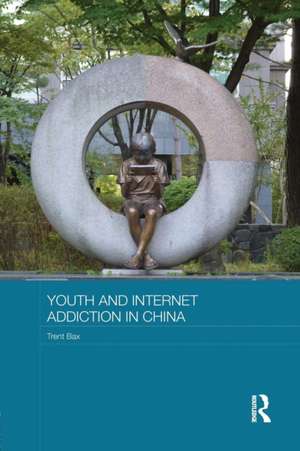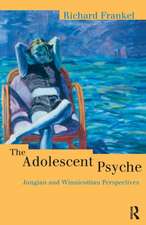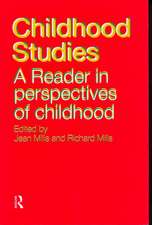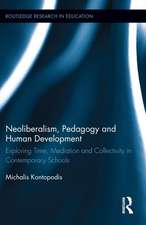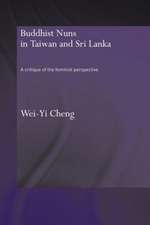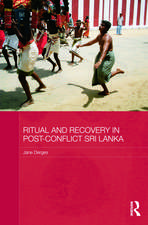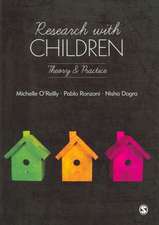Youth and Internet Addiction in China: Routledge Culture, Society, Business in East Asia Series
Autor Trent Baxen Limba Engleză Paperback – 9 dec 2015
| Toate formatele și edițiile | Preț | Express |
|---|---|---|
| Paperback (1) | 259.80 lei 6-8 săpt. | |
| Taylor & Francis – 9 dec 2015 | 259.80 lei 6-8 săpt. | |
| Hardback (1) | 731.65 lei 6-8 săpt. | |
| Taylor & Francis – 6 aug 2013 | 731.65 lei 6-8 săpt. |
Din seria Routledge Culture, Society, Business in East Asia Series
-
 Preț: 317.67 lei
Preț: 317.67 lei -
 Preț: 436.14 lei
Preț: 436.14 lei - 28%
 Preț: 764.62 lei
Preț: 764.62 lei -
 Preț: 390.54 lei
Preț: 390.54 lei -
 Preț: 429.62 lei
Preț: 429.62 lei -
 Preț: 449.41 lei
Preț: 449.41 lei -
 Preț: 386.61 lei
Preț: 386.61 lei -
 Preț: 469.34 lei
Preț: 469.34 lei -
 Preț: 383.12 lei
Preț: 383.12 lei -
 Preț: 389.66 lei
Preț: 389.66 lei -
 Preț: 381.47 lei
Preț: 381.47 lei -
 Preț: 389.66 lei
Preț: 389.66 lei -
 Preț: 274.66 lei
Preț: 274.66 lei
Preț: 259.80 lei
Nou
Puncte Express: 390
Preț estimativ în valută:
49.73€ • 54.03$ • 41.80£
49.73€ • 54.03$ • 41.80£
Carte tipărită la comandă
Livrare economică 21 aprilie-05 mai
Preluare comenzi: 021 569.72.76
Specificații
ISBN-13: 9781138643567
ISBN-10: 1138643564
Pagini: 240
Dimensiuni: 156 x 234 x 13 mm
Greutate: 0.34 kg
Ediția:1
Editura: Taylor & Francis
Colecția Routledge
Seria Routledge Culture, Society, Business in East Asia Series
Locul publicării:Oxford, United Kingdom
ISBN-10: 1138643564
Pagini: 240
Dimensiuni: 156 x 234 x 13 mm
Greutate: 0.34 kg
Ediția:1
Editura: Taylor & Francis
Colecția Routledge
Seria Routledge Culture, Society, Business in East Asia Series
Locul publicării:Oxford, United Kingdom
Public țintă
PostgraduateCuprins
Introduction: Turn On 1. Log In 2. The Internet Addiction Disorder 3. Critiques of the Internet Addiction Disorder Model 4. The Humanistic Intensive Internet Use Model 5. The Family War-Machine and the Search for Freedom 6. Push & Pull Factors 7. DSM-IV – Internet Addiction Disorder 8. Conclusion: Log off
Recenzii
“The case study helps unearth solutions to common “psychosocial problems”. Recommended for upper-division undergraduates and above.” Y.Kiuchi, Michigan State University – Choice February 2014
'The idea of Internet addiction haunts parents, teachers, and other adults, as well as the youth who feel overwhelmed by the appeal of the virtual world. Many refer to psychological instability, worsening grades at school, distancing of self from friends and family, and other signs as evidence of such addiction. ... The author recognizes that some Chinese youth indeed demonstrate problematic behavioral patterns that make it difficult to lead what is considered to be a "normal" life. In order to deal with these concerns, Bax suggests that a new approach of "[seeking] to uncover the intra-, inter- and extra-personal factors underlining socially problematic Internet use" is necessary. This approach is applicable to other social concerns in the era of digital technology outside of China. The case study helps unearth solutions to common "psychosocial problems."' – Y. Kiunchi, Michigan State University, CHOICE, February 2014
"This book will be of value to clinicians, researchers and those interested in cross-cultural differences in the perception of addictive behaviours and their treatment, and those seeking alternative humanistic-based explanations for excessive behaviours. A highly recommended and informative read." – International Gambling Studies
'The idea of Internet addiction haunts parents, teachers, and other adults, as well as the youth who feel overwhelmed by the appeal of the virtual world. Many refer to psychological instability, worsening grades at school, distancing of self from friends and family, and other signs as evidence of such addiction. ... The author recognizes that some Chinese youth indeed demonstrate problematic behavioral patterns that make it difficult to lead what is considered to be a "normal" life. In order to deal with these concerns, Bax suggests that a new approach of "[seeking] to uncover the intra-, inter- and extra-personal factors underlining socially problematic Internet use" is necessary. This approach is applicable to other social concerns in the era of digital technology outside of China. The case study helps unearth solutions to common "psychosocial problems."' – Y. Kiunchi, Michigan State University, CHOICE, February 2014
"This book will be of value to clinicians, researchers and those interested in cross-cultural differences in the perception of addictive behaviours and their treatment, and those seeking alternative humanistic-based explanations for excessive behaviours. A highly recommended and informative read." – International Gambling Studies
Descriere
A form of 'electronic opium' is how some people have characterised young people’s internet use in China. The problem of 'internet addiction' (wangyin) is seen by some parents as so severe that they have sought psychiatric help for their children. This book contrasts the views of young people who see internet use as a welcome escape from the pressures of contemporary Chinese life, with the approach of their parents, who medicalise internet overuse and insist that working hard for good school grades is the way to progress. The author argues that the greater problem may in fact lie with parents and other authority figures, who misguidedly apply high pressure to enforce young people to conform to the empty values of a modern, dehumanised consumer-oriented society.
